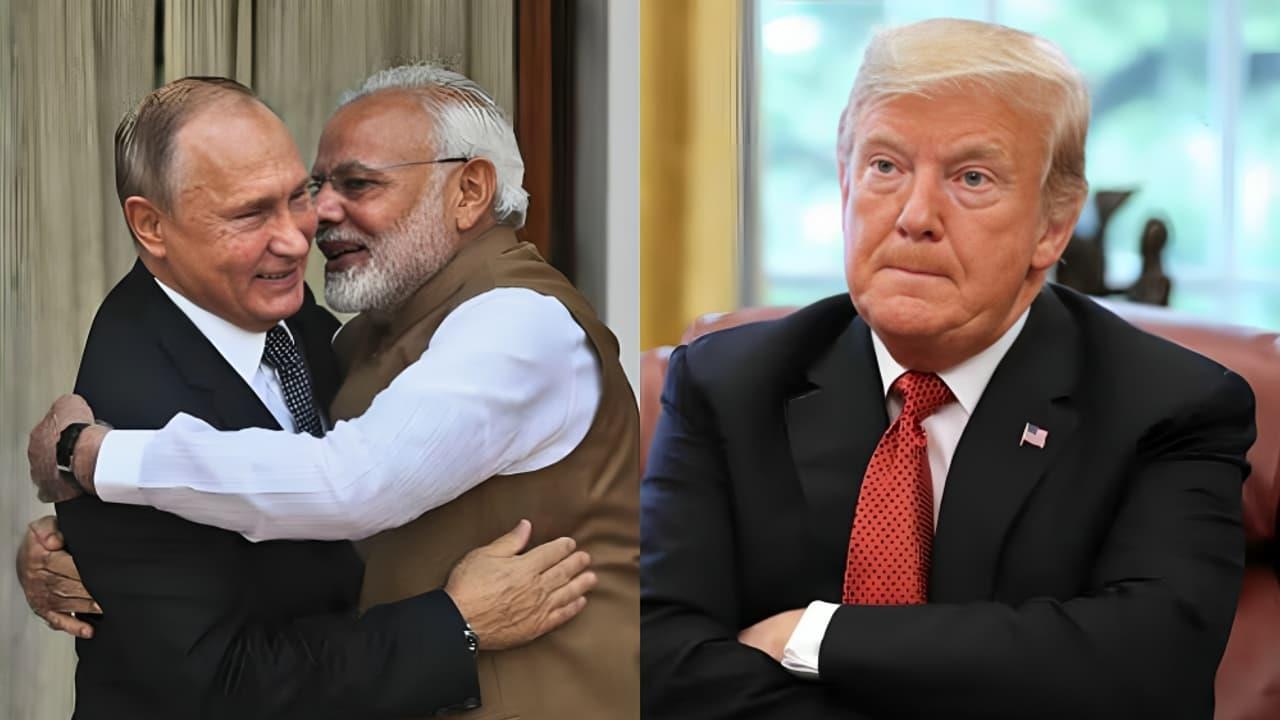'India On Call With Putin': NATO Chief Says US Tariffs Pushed PM Modi To Seek Ukraine Answers
In a startling claim on the sidelines of the UN General Assembly, NATO Secretary-General Mark Rutte reportedly said that US President Donald Trump's recent tariffs on India, meant to penalise India for buying Russian oil, are already reverberating in Moscow. He asserted that India is now reaching out to Russia, with Prime Minister Narendra Modi purportedly asking President Vladimir Putin to clarify his Ukraine war plans.
Speaking to CNN, Rutte said He phrased it plainly:
"Delhi is on the phone with Vladimir Putin ... Narendra Modi is asking him, 'I support you, but could you explain me your strategy because I have now been hit by these 50% tariffs by the United States."
Rutte argued that the tariffs 'immediately impact Russia' because India, having been hit by those tariffs, would naturally seek political explanations and confidence from Moscow.
So far, no confirmation or denial has come from either New Delhi or Moscow in response to his assertions.
What the tariffs are and why they were imposed
Last month, US President Trump imposed a 25 percent reciprocal tariff on Indian goods, followed by an additional 25 percent penalty targeting India's import of Russian oil. In effect, this means some Indian goods could face up to 50 percent tariffs entering the US market.
The Trump administration's stated rationale is that India's purchase of Russian energy indirectly supports Moscow's war effort in Ukraine, an argument that US officials have made publicly.
India, on its part, has defended its energy deals as necessary for securing affordable oil for a population of 1.4 billion amid global supply shocks. It has argued that unlike some Western states, it faces a more limited set of options to meet its energy demand.
The logic behind Rutte's claim and its challenges
Mark Rutte's argument is that US tariffs are putting pressure on India. He says higher costs on Indian exports and the penalty on Russian oil imports are forcing New Delhi to seek clarity from Moscow. In his view, this makes India ask Russia to explain its Ukraine strategy, which in turn puts pressure back on Moscow.
However, there are clear doubts about this claim. There is no proof that Prime Minister Modi has made such a call and neither India nor Russia has confirmed it. Even if the discussion happened, linking it only to US tariffs ignores the deeper and long-standing ties between India and Russia. India usually follows a balanced foreign policy, talking to all sides, so Rutte's words seem more like a political narrative than a confirmed fact.
Given the lack of public confirmation or denial, the claim remains more of a strategic narrative than an established fact.
What PM Modi and Putin discussions show so far
Modi and Putin have spoken multiple times in recent weeks. On September 17, Putin called Modi to mark the latter's birthday, during which Modi affirmed India's 'full support for peaceful resolution' of the Ukraine conflict. Earlier, on September 1, the two leaders met during the SCO Summit in Tianjin, China. According to reports, they even travelled together in the same car from the summit venue to their bilateral meeting site.
Still, those conversations were framed in diplomatic and strategic rather than overtly pressure-driven terms.
Pushback, criticism and what remains to be seen
Some observers are likely to see Rutte's remarks as part of a broader geopolitical narrative pushing India to align more strictly with Western positions on Russia. The claim also invites scrutiny:
- India's diplomatic style typically avoids escalatory rhetoric or confirmation of private calls. Russia may view such statements as attempts to sow doubt or influence bilateral ties.
Legal Disclaimer:
MENAFN provides the
information “as is” without warranty of any kind. We do not accept
any responsibility or liability for the accuracy, content, images,
videos, licenses, completeness, legality, or reliability of the information
contained in this article. If you have any complaints or copyright
issues related to this article, kindly contact the provider above.
Most popular stories
Market Research

Stratx Launches Compliance-Aware Routing Protocol For Stablecoins, Rwas, And Cross-Border Settlement
- Kucoin Appeals FINTRAC Decision, Reaffirms Commitment To Compliance
- FBS Analysis Shows Ethereum Positioning As Wall Street's Base Layer
- VCUK Launches New Private Equity And Venture Capital Initiative With A Focus On Europe
- Zebu Live 2025 Welcomes Coinbase, Solana, And Other Leaders Together For UK's Biggest Web3 Summit
- Betfury Is At SBC Summit Lisbon 2025: Affiliate Growth In Focus
- Moonx: The Leading Crypto Trading Platform With X1000 Leverage And Unlimited Meme Coin Access






















Comments
No comment